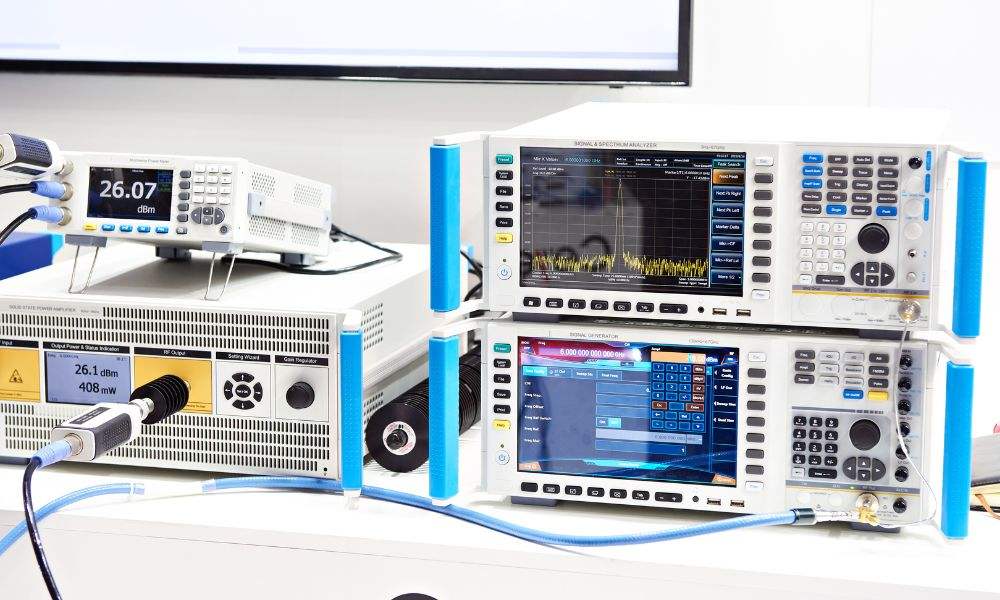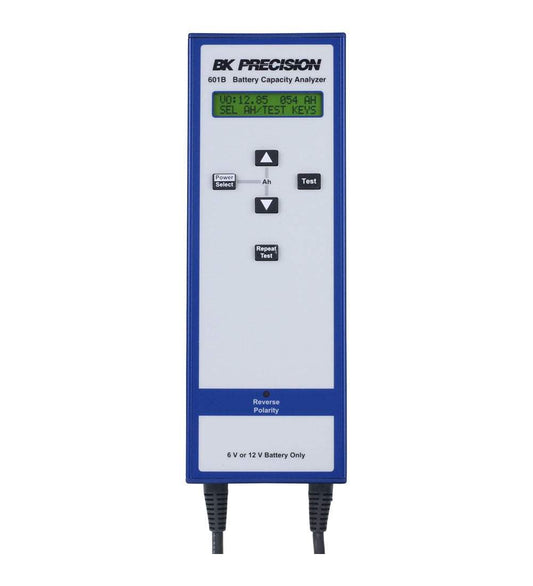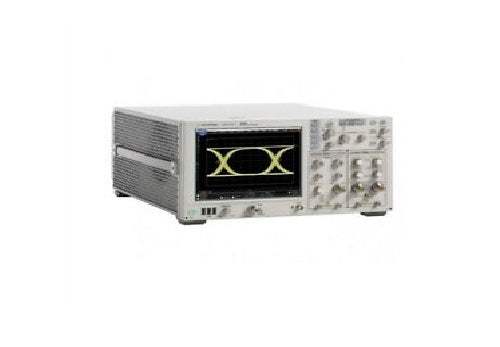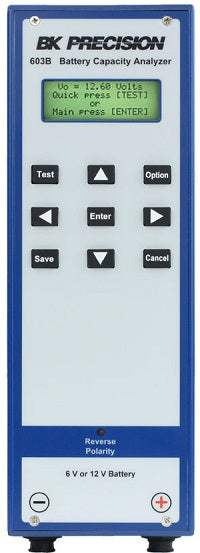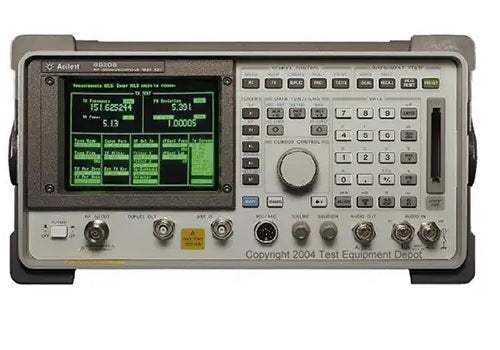In the realm of electronic laboratories, the tools and instruments used are not just auxiliary equipment but the backbone that ensures precision and efficiency. Spectrum analyzers give a graphical representation of signals within the frequency domain, which is critical for understanding and troubleshooting circuits.
These devices cover multiple functions, from analyzing the quality of signals to identifying unwanted emissions. This comprehensive guide will break down the role of spectrum analyzers in electronic laboratories.
Signal Integrity
Signal integrity is crucial for both analog and digital systems, impacting everything from data throughput to energy efficiency. Spectrum analyzers provide a comprehensive view of the frequency components within a signal, revealing critical parameters such as the signal-to-noise ratio.
With this data, engineers can take steps to filter out noise or enhance the quality of the signal. In the era of high-speed data transfer and Internet of Things (IoT) devices, maintaining signal integrity is more critical than ever to prevent latency and system malfunctions.
Signal Capture for IoT Devices
The Internet of Things has exploded in both consumer and industrial applications. As a result, the ability to capture and analyze signals from a multitude of connected devices has become increasingly vital.
Spectrum analyzers can record these signals over time, allowing for a more in-depth analysis of intermittent issues or performance trends. This data is invaluable for troubleshooting and optimizing IoT networks, where even a small degree of inefficiency or inaccuracy can have a ripple effect across interconnected systems.
Harmonics and Spurious Emissions
In systems where radio frequency (RF) components are prevalent, harmonic distortions and spurious emissions can wreak havoc. Not only do these unwanted components compromise the integrity of a system, but they also potentially violate regulatory guidelines.
Spectrum analyzers provide a fine-tuned view to identify these components, which is particularly essential when devices must comply with industry standards like FCC regulations for electromagnetic interference (EMI). Failure to identify and mitigate these elements could result in hefty fines and reputational damage.
Frequency Response Measurement
The frequency response of an electronic system directly impacts its functionality and effectiveness. Spectrum analyzers offer more than just a basic view; they provide a detailed representation of how systems interact with different frequencies, revealing potential bottlenecks.
The information can be invaluable when tuning resonant circuits, equalizing audio signals, or optimizing broadband communications systems. Moreover, this analysis helps in pre-empting issues that could arise during the scaling or modification of systems.
Modulated Signal Analysis
With the increasing complexity of modern communication systems—think 5G and beyond—the modulation schemes have also become more intricate. Spectrum analyzers can dissect complex modulated signals, such as quadrature amplitude modulation (QAM), which is widely used in digital television and radio. This level of analysis is crucial for diagnosing issues with data integrity and latency, especially in systems that rely on real-time data transmission. Therefore, the role of spectrum analyzers extends to ensuring robust and reliable communication protocols.
Phase Noise Measurement
Phase noise can significantly degrade the performance of an RF or digital system. By allowing a detailed study of the spectral density, spectrum analyzers enable engineers to ascertain the level of phase noise and its potential impact. Understanding phase noise is particularly critical in precision applications like GPS, radar, and some medical imaging techniques. Engineers often use this data to select oscillators and other components that minimize phase noise, thereby enhancing system reliability.
Filters and Amplifiers
Filters and amplifiers serve to condition the signal in electronic systems, but their characteristics can drastically alter system performance. Using a spectrum analyzer, engineers can determine various parameters, such as Q-factor, bandwidth, and gain, with high accuracy. The ability to characterize these components is crucial in applications ranging from audio processing to RF communication and even in medical devices like hearing aids.
Spectral Mask Tests
Compliance with industry-specific spectral masks is mandatory for many electronic products. For example, in wireless communications, failing to meet the spectral mask can cause interference with other channels. Spectrum analyzers give a detailed comparison between the observed spectrum and the allowable mask, thereby flagging any potential compliance issues. This is essential for quality assurance and prevents costly recalls or legal complications post-launch.
Power Measurements
The accurate measurement of power levels is vital for ensuring compliance and operational efficiency, particularly in RF systems. Unlike other methods, spectrum analyzers can measure power levels over a specific bandwidth, providing a more nuanced understanding. This level of detail is particularly useful in applications like RF heating or radiation therapy, where a slight deviation in power can have significant consequences.
Transient Response Monitoring
Dynamic systems are susceptible to transient events, like power surges or sudden changes in load, which can cause instabilities. Spectrum analyzers can capture these transient events in real time, enabling engineers to study their effects minutely. For systems that demand high reliability, like power grids or industrial automation systems, this capability is invaluable.
Network Analysis
Although network analyzers are commonly used for evaluating network components, spectrum analyzers also have a role to play. Particularly, they provide spectral characteristics of the components, revealing insights such as insertion loss or return loss over a frequency range. This additional layer of data is invaluable for fine-tuning network performance and ensuring robust, reliable connections.
Real-Time Spectrum Analysis
Real-time spectrum analysis provides instant feedback on system performance, a feature increasingly important in systems that cannot afford downtime. Modern spectrum analyzers equipped with real-time capabilities offer this advantage. This is particularly useful in applications like radar systems or live media streaming, where lag and interruptions can compromise the system’s primary function.
RF Interference Analysis
Radio frequency interference is a pervasive issue in densely populated electromagnetic environments. It can be a nuisance in best-case scenarios and a significant problem at worst. With spectrum analyzers, it’s possible to identify and localize sources of interference, such as rogue transmitters or malfunctioning devices.
Engineers can then either change the operating frequency or take corrective measures to mitigate the interference. This is vital in applications like air traffic control, emergency services, and other mission-critical operations where even a minor interference could have far-reaching implications.
Now that you know the role of spectrum analyzers in electronic laboratories, it’s clear to see how integral they are in varied contexts, from ensuring signal integrity to making intricate power measurements. The applications span across sectors, including telecommunications, healthcare, and even environmental monitoring. As technology evolves, the depth and range of these applications are only expected to expand, cementing the spectrum analyzer’s status as an indispensable tool in modern electronic labs.



